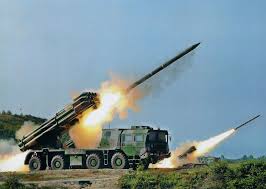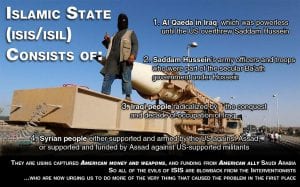
Unveiling the Truth Behind the Russia-Syrian Conflict
Updated Sept 6, 2023
Introduction
Russia first became involved in the Syrian civil war in 2015 when it launched a military intervention at the request of the Syrian government. Russia’s main goals were to protect its geopolitical interests, support its ally, President Bashar al-Assad, and combat terrorist groups like ISIS that threatened Russian security.
Militarily, Russia tipped the balance of the war in favour of Assad’s regime through decisive air and ground support. This allowed Syrian forces to retake critical cities and territories with Russian backing. Politically, Russia emerged as a leading diplomatic player by hosting Syrian peace talks and ceasefire negotiations.
Energy interests also factor into Russia’s calculus. It seeks to maintain access to warm-water ports like Tartus, strategically crucial for Russian trade. And as a top global oil producer, Russia benefits from stability in the oil-rich Middle East region.
Looking ahead, Russia aims to leverage its influence to shape Syria’s post-war political settlement and secure long-term military and economic access—however, ongoing instability and competition from regional rivals like Turkey challenge Russian ambitions.
The Russia-Syrian Conflict: Exploring its Historical Context
The historical context of the Russia-Syrian conflict is complex and multifaceted. While it is true that the Arab Oil Embargo of the 1970s had a significant impact on the West’s perception of oil markets, it is essential to note that the conflict between Russia and Syria cannot be solely attributed to this event.
The relationship between Russia and Syria dates back several decades, with the Soviet Union providing military and economic support to Syria during the Cold War. This support continued even after the dissolution of the Soviet Union, as Russia sought to maintain its influence in the region.
The Russia-Syrian Conflict has evolved into a complex proxy war involving various regional and international actors in recent years. Russia’s involvement in the competition can be seen as a strategic move to protect its interests in the Middle East, including its naval base in Tartus and its access to the Mediterranean Sea. Additionally, Russia has been a longstanding ally of the Syrian government, providing military support and diplomatic backing.
It is worth noting that oil interests do not solely drive the motivations behind Russia’s involvement in the conflict. While Russia is a significant oil producer, its involvement in Syria is influenced by geopolitical considerations, regional stability, and the desire to project power on the global stage.
The historical context of the Russia-Syrian conflict is shaped by a complex interplay of factors, including geopolitical interests, historical alliances, and regional dynamics. While oil markets have shaped the West’s approach to the region, it is crucial to consider a broader range of factors when analyzing the motivations behind Russia’s involvement in the conflict.
Russia-Syrian Conflict: Putin’s Ascent and the Shifting Global Landscape
In 2008, America made a pivotal decision by electing a president who campaigned on a promise to end the ongoing wars in which the U.S. was entangled. With Barack Obama’s election, it seemed as if the nation was embracing the most restrained foreign policy approach since the days of the Wilson Administration. The notion that the United States would withdraw from its role as the global enforcer set off a chain of events that invited opportunistic leaders to step into the resulting power vacuum.
Vladimir Putin, driven by a genuine desire to restore Russia to its former greatness, took the initiative and launched his expansionist agenda by invading Ukraine. In response, President Obama delivered a stern address and a list of compelling reasons why, in his view, Putin’s actions constituted a departure from the expected norms of 21st-century conduct.
This clash of ideologies and strategies marked a pivotal moment in global geopolitics. Putin’s actions challenged the post-Cold War status quo, where the United States had been the predominant superpower. The emergence of a resurgent Russia under Putin’s leadership raised questions about the future of international relations and the balance of power on the global stage. It was a shift that would have far-reaching consequences and set the stage for a new era in the evolving international order.
The Russian-Syrian Conflict and Russia’s Involvement: A Complex Geopolitical Tale
The Syrian conflict has been a long and complex journey, with various actors playing significant roles in shaping its course. Russia’s involvement in the competition has been a critical factor that has had far-reaching implications.
As the conflict escalated, Russia intervened to support the Syrian government led by President Bashar al-Assad. This decision was driven by multiple factors, including Russia’s historical alliance with Syria, its desire to maintain influence in the Middle East, and its concerns about the spread of extremism and terrorism in the region.
Russia’s military intervention, which began in 2015, had a significant impact on the dynamics of the conflict. Russian forces provided crucial support to the Syrian government, helping to turn the tide in its favour and regain control over key territories. This involvement allowed Russia to protect its strategic interests, such as its naval base in Tartus, and project its power on the global stage.
Furthermore, Russia’s involvement in Syria also demonstrated its military capabilities and showed its willingness to challenge the United States and its allies in the region. This assertive stance by Russia has reshaped the geopolitical landscape and contributed to the complexities of the conflict.
In conclusion, Russia’s involvement in the Syrian conflict has been a critical factor in shaping its trajectory. Through its military intervention, Russia has sought to protect its interests, maintain regional influence, and project its power on the global stage. The consequences of this involvement continue to reverberate in the ongoing conflict.
The Role of Russia in Ending the Syrian War
Russia has indeed played a pivotal role in resolving the Syrian conflict. While the war is not fully over, Russia’s intervention helped shift the momentum towards a political solution.
In 2016, Russia helped broker the ceasefire agreement in Astana that led to the establishment of de-escalation zones across Syria. This agreement was a significant step towards reducing violence and allowing humanitarian aid to reach civilians. Russia also participated in the UN-led peace talks in Geneva, supporting a political transition while ensuring the stability of the Syrian government.
Russia has recently worked with Turkey and Iran during the Astana Process peace talks. This format has been integral to negotiations between the Syrian government and opposition groups. In 2020, Russia helped draft the new Syrian constitution to pave the way for UN-supervised elections.
By maintaining open channels of communication with all sides of the conflict and using its influence over its allies, Russia has been able to facilitate compromises and de-escalate tensions. However, challenges remain due to the complexity of the war and the competing interests involved. Russia continues to play a balancing role in peace efforts while ensuring its strategic priorities are met.
Overall, Russia’s military and diplomatic involvement has allowed it to shape the trajectory of the conflict. It will remain integral to ongoing negotiations and the complicated process of reaching a final peace agreement.
The Future of the Middle East and the Role of Russia
The future of the Middle East remains uncertain, but Russia’s growing involvement in the region suggests its influence will continue shaping geopolitical dynamics in the years to come. Russia is a critical global energy producer and economic partner interested in ensuring stability.
In recent years, Russia has cemented its role as a diplomatic power broker through involvement in conflicts like Syria and negotiations regarding issues like Iran’s nuclear program. It has also expanded its military presence, opening a new naval base in Sudan. This has allowed Russia to project power in the Mediterranean and Red Seas.
Russia will likely seek to leverage its status to maintain strategic partnerships and balance other regional foreign influences. It may continue supporting authoritarian regimes in places like Syria and Egypt that guarantee Russian interests. However, Russia faces challenges to its vision from actors like Turkey, which has grown more assertive in Syria and Libya in competition with Russia.
Within countries like Syria and Iraq, Russia must also grapple with ongoing instability and the challenge of rebuilding war-torn societies. How successfully Russia navigates these issues will determine whether its regional influence lasts or begins to wane. Younger generations with new aspirations could also reshape the political landscape in ways that alter Russia’s strategic calculations.
Energy markets will also be a key factor, as Russia jockeys with other producers like Saudi Arabia and the United States for influence over oil and natural gas exports. How production and prices evolve long-term from conflicts and climate change responses will impact Russian interests.
In summary, Russia aims to cement its status as a premier power in the Middle East, but uncertainties remain regarding long-term stability, political changes, energy trends and competition from other actors that could challenge Russian ambitions. Its future role will depend on navigating these complex dynamics.
Assessing The Russia-Syrian Conflict: A Strategic Misstep
The current situation in Syria leaves no room for doubt regarding Russia’s intentions. According to several senior administration officials, Russia is actively pursuing dominance in the region’s airspace and aims to establish itself as the decisive force on the ground.
One senior administration official remarked, “The recent communication from Russian officials in Baghdad left no room for misinterpretation. Their objective is crystal clear: evacuate the airspace around ISIS targets and cease aerial operations.”
While U.S. authorities have no intentions of yielding ground to Russia, they also believe that Russian President Vladimir Putin’s recent actions constitute a significant, yet poorly considered, move on the geopolitical chessboard. Some have even labelled it a “strategic blunder.” If Russia had been transparent about its objective of supporting Syria to prevent the collapse of President Bashar al-Assad’s regime – a scenario favourable to ISIS – they might have garnered international support.
However, their initial strikes in the region targeted CIA-backed anti-Assad rebel forces, a move that drew criticism from figures like Arizona Republican John McCain, Chairman of the Senate Armed Services Committee. This raised concerns that every bombing raid against non-ISIS Sunni groups aligns Russia more closely with Shiite entities like Iran and Hezbollah. U.S. allies in the Persian Gulf warn that this alignment could trigger a massive sectarian conflict. Moreover, as Russia deepens its involvement, restarting diplomatic efforts with Saudi Arabia and other vital regional players becomes increasingly challenging. Full Story
The Russian-Syrian Conflict: Conclusion
The Russian-Syrian conflict has proven to be a pivotal chapter in the broader story of the Middle East and the evolving global order. It emerged when the United States, under President Obama’s leadership, was pursuing a less interventionist foreign policy, marking a departure from its role as the world’s primary enforcer.
This shift created a vacuum that opportunistic leaders, including Russia’s Vladimir Putin, were quick to exploit. Driven by a genuine desire to restore Russia’s past glory, Putin seized the opportunity by launching an expansionist agenda that began with the invasion of Ukraine. President Obama delivered a stern address in response, outlining the departure from expected 21st-century behaviour.
The clash of ideologies and strategies during this time was nothing short of seismic, challenging the post-Cold War status quo where the United States had held sway as the predominant superpower. The re-emergence of a resurgent Russia under Putin’s leadership raised profound questions about the future of international relations and the balance of power on the global stage.
Russia’s intervention in Syria further complicated this landscape. Russia supported Syrian President Bashar al-Assad’s regime as the conflict escalated, citing historical alliances and concerns about regional extremism. The impact of Russia’s military intervention was significant, ultimately turning the tide in favour of the Syrian government.
Yet, this assertive stance by Russia came with consequences. It aligned Russia more closely with Shiite entities like Iran and Hezbollah, exacerbating sectarian tensions. The conflict also strained relationships with U.S. allies in the Persian Gulf, hindering diplomatic efforts.
In conclusion, the Russian-Syrian conflict has been a defining element of the changing global order. It revealed the complexities of power shifts and the challenges of navigating a multipolar world. Russia’s involvement not only reshaped the Middle East but also contributed to a reevaluation of global power dynamics. As we look ahead, it remains to be seen how this conflict will continue to shape the international stage and influence the future of the Middle East.
Other stories of interest:
EU stands to benefit by Granting China free market status
China cuts rates to boost green energy demand

China showcases its culture to the World
Remaking Moscow lures more Chinese investment
Chinese firms extend Moscow’s rail networks
Russians show patriotism on nuclear bunker tours
Moscow hi-tech parks seek lower production costs
Despite challenges & sanctions: Russian oil & gas remain profitable
Downed Su-24 shows U.S treachery
Global Warming Is Fake: Let’s See If This is True

Chinese flocking to U.S. Real Estate and German Migrant crisis

U.S. backed Coup in Ukraine, China wins, Russia resists



